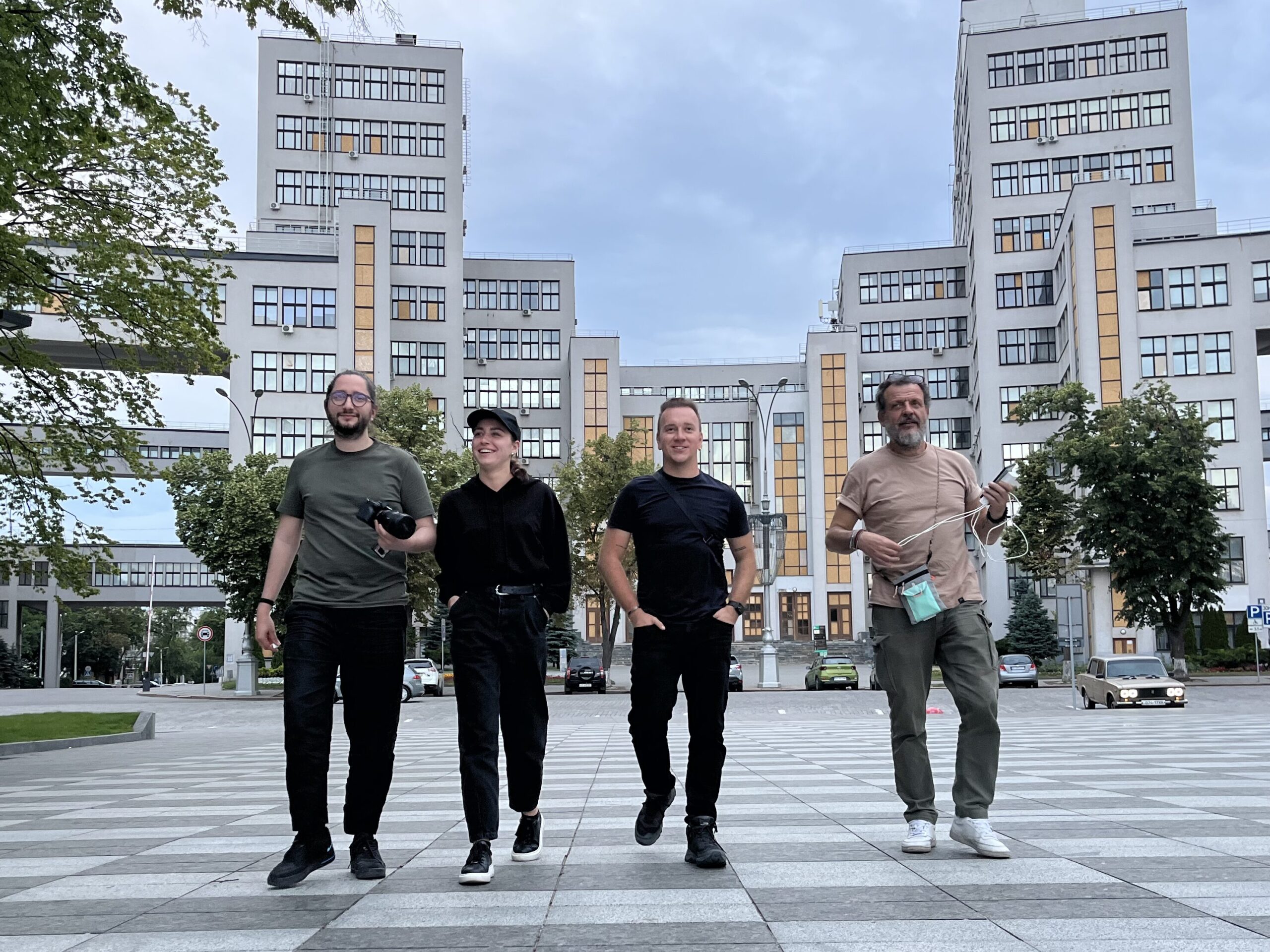
In much of Latin America, Ukraine is still seen through a narrow and often distorted lens — shaped by distance, limited direct contact, and the persistence of Kremlin-backed disinformation. While Russia’s invasion dominates global headlines, the reality of Ukraine today extends far beyond the front lines. It is a story of survival and adaptation, of citizens navigating a war while holding onto their institutions, culture, and identity.
In late June, Colombian journalist Juan Carlos Rincón Escalante — opinion editor at El Espectador and co-creator of the political satire program La Pulla — spent a week in Ukraine at the invitation of the Transatlantic Dialogue Center (TDC). His visit, organized under the Spain and Latin America Cooperation Program, aimed to connect societies that, while facing different histories and geographies, share experiences of violence, trauma, and democratic fragility. The goal was not simply to report the war, but to understand the people living through it.
“I wanted to understand how Ukrainians live in the midst of war — not just what the Russian invasion means, but what everyday life looks like here,” Rincón said. “How people cope emotionally, how they protect their mental health, and what they still hope for. I think I’ve seen that.”
Experiencing Ukraine Across Regions
Over the course of one week, Rincón, together with Venezuelan communicator and YouTuber Oscar Alejandro Pérez and members of the TDC team, Alina Rohach (Project manager) and Bohdana Batsko (Project assistant), traveled across Kyiv, Kharkiv, and Lviv. The itinerary — designed and coordinated by Oleksandr Slyvchuk (Project Coordinator), Rohach, and Batsko — was a deliberately structured journey aimed at capturing the human experience behind the headlines.
Kyiv: Daily Life, Interrupted
Rincón’s journey began in Kyiv, where a Sunday walk took him past the Pechersk Lavra, the Motherland Monument, the Holodomor Museum, and the city center.
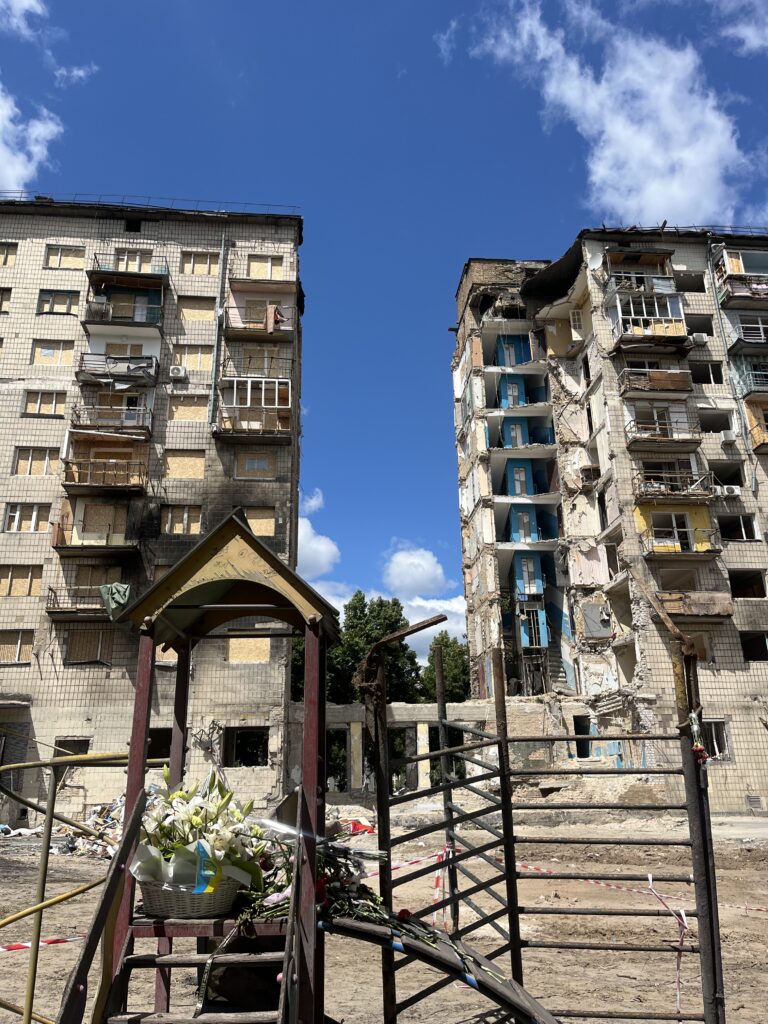
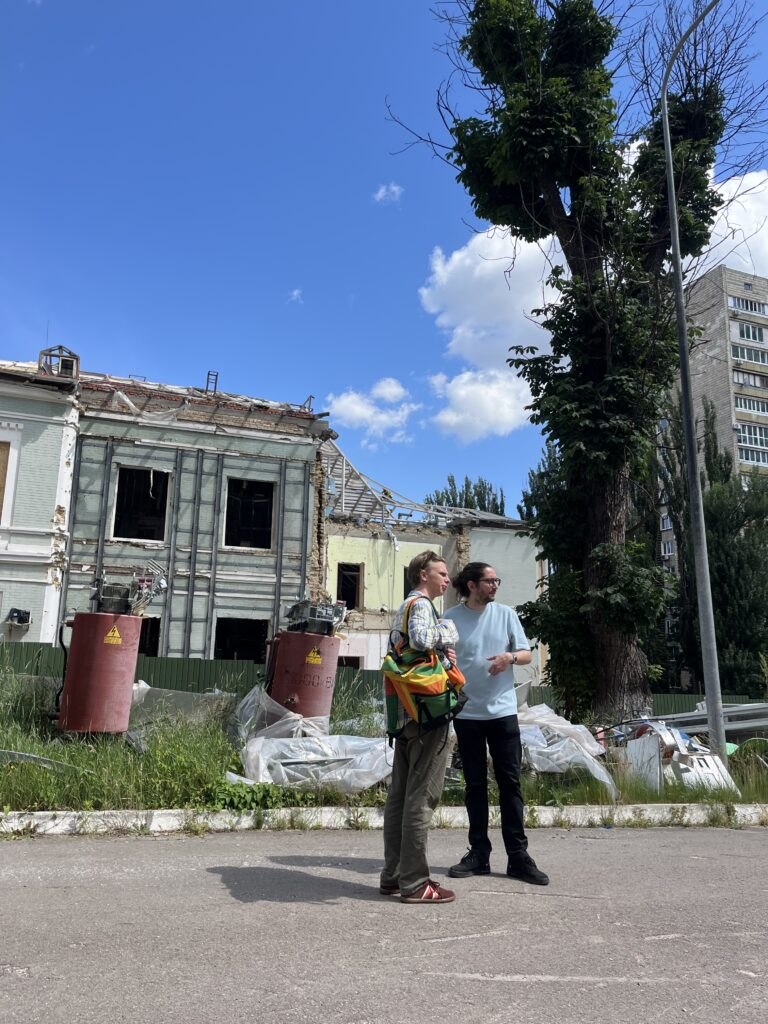
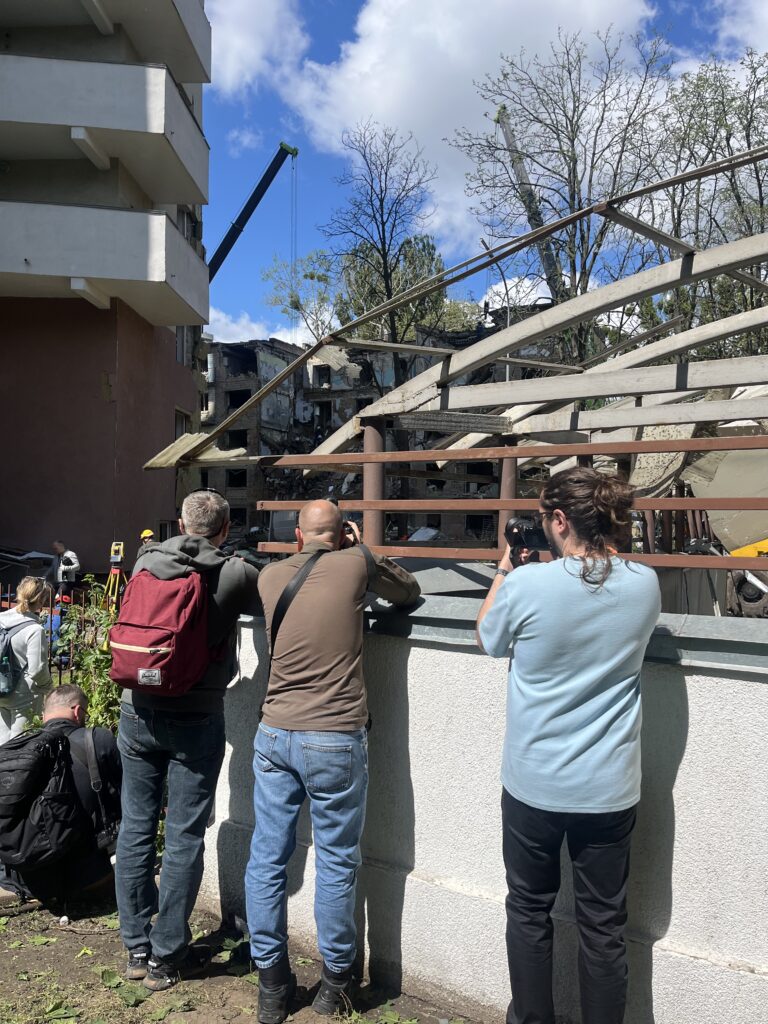
The fragile normality broke quickly. On the night of June 23, a Russian drone struck a residential building. By morning, Rincón was at the site, taking in the damage. He later visited other residential buildings, a shopping center, the Ohmatdyt Children’s Hospital, and a university hit in the same wave of attacks.
“I end the day emotionally overwhelmed,” he reflected. “Seeing the destruction up close is shocking — so much suffering. Yet I’m deeply impressed by the Ukrainians I’ve met, living in this constant emotional whiplash between the pain of daily attacks and the need to carry on. Colombians know a lot about that.”
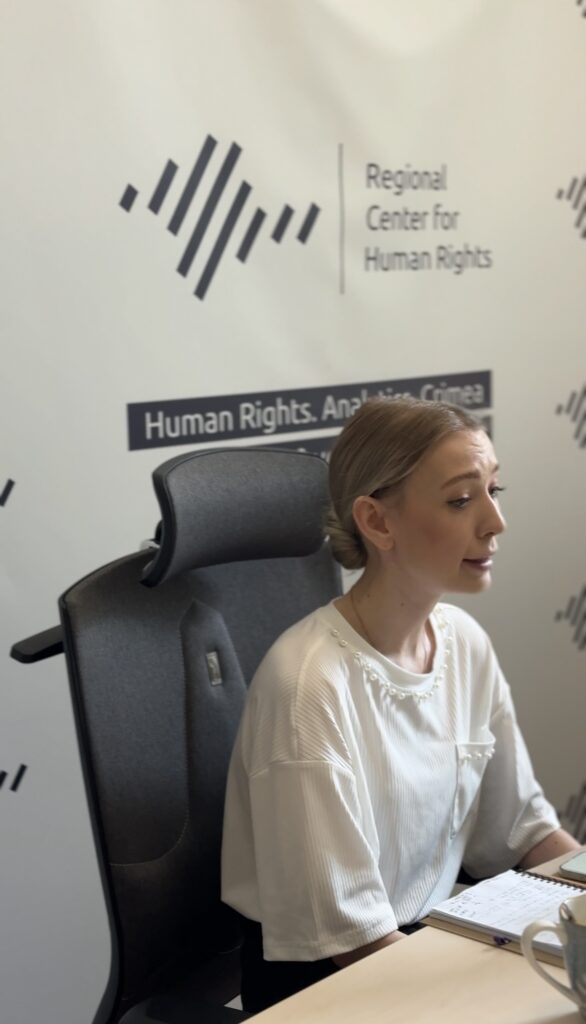
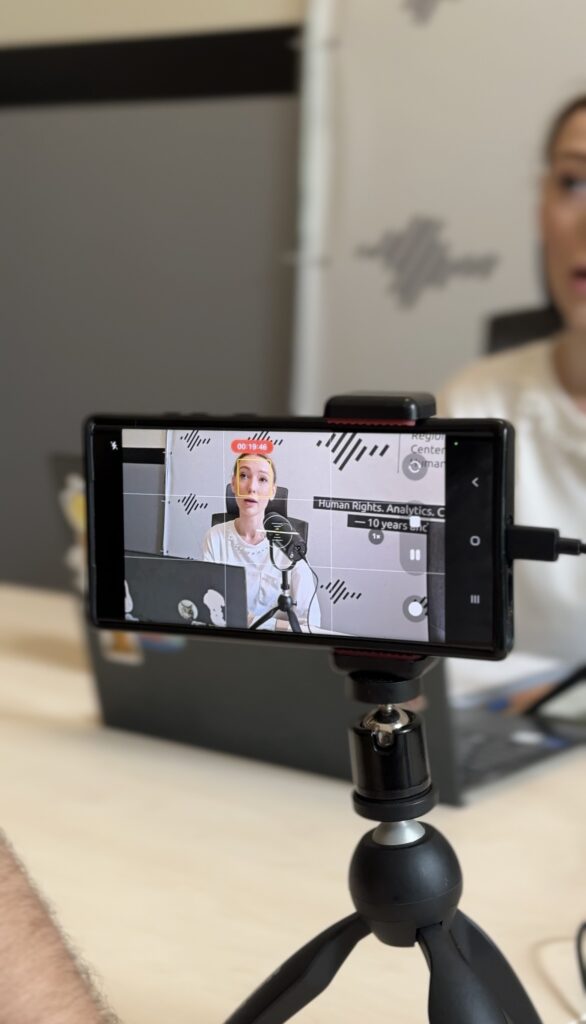
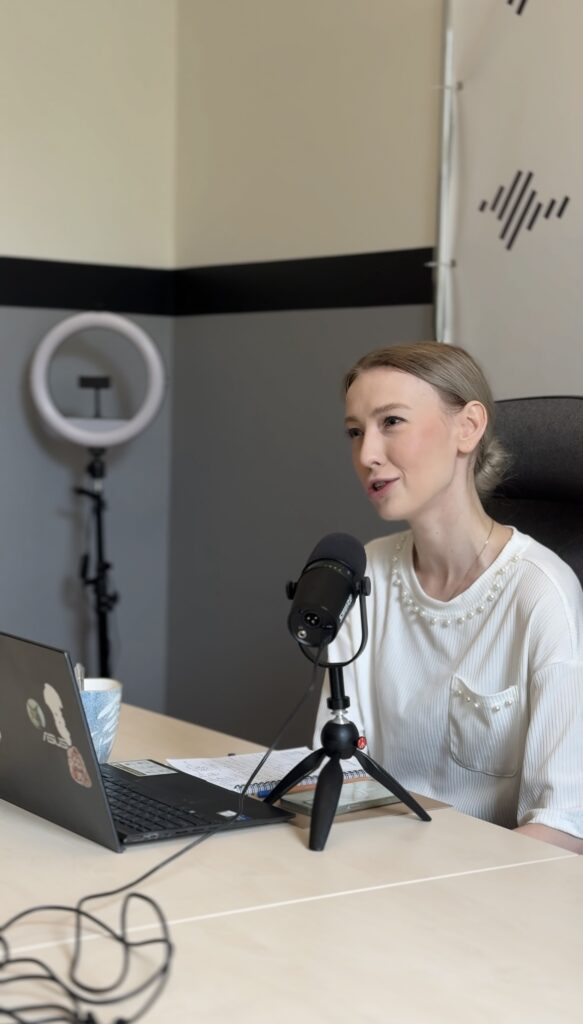
Kyiv’s meetings offered a window into the non-military fronts of the war. At the Regional Center for Human Rights, legal expert Kateryna Rashevska outlined Russia’s systematic deportation of Ukrainian children — evidence now forming the basis for International Criminal Court proceedings, including an arrest warrant for Vladimir Putin.
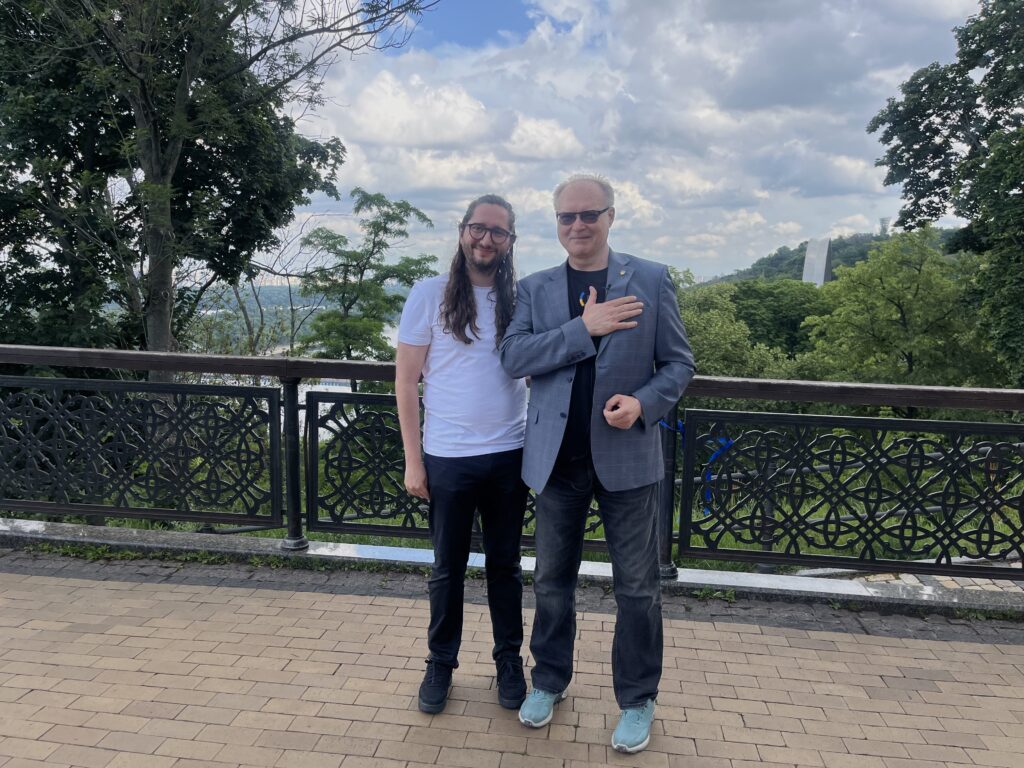
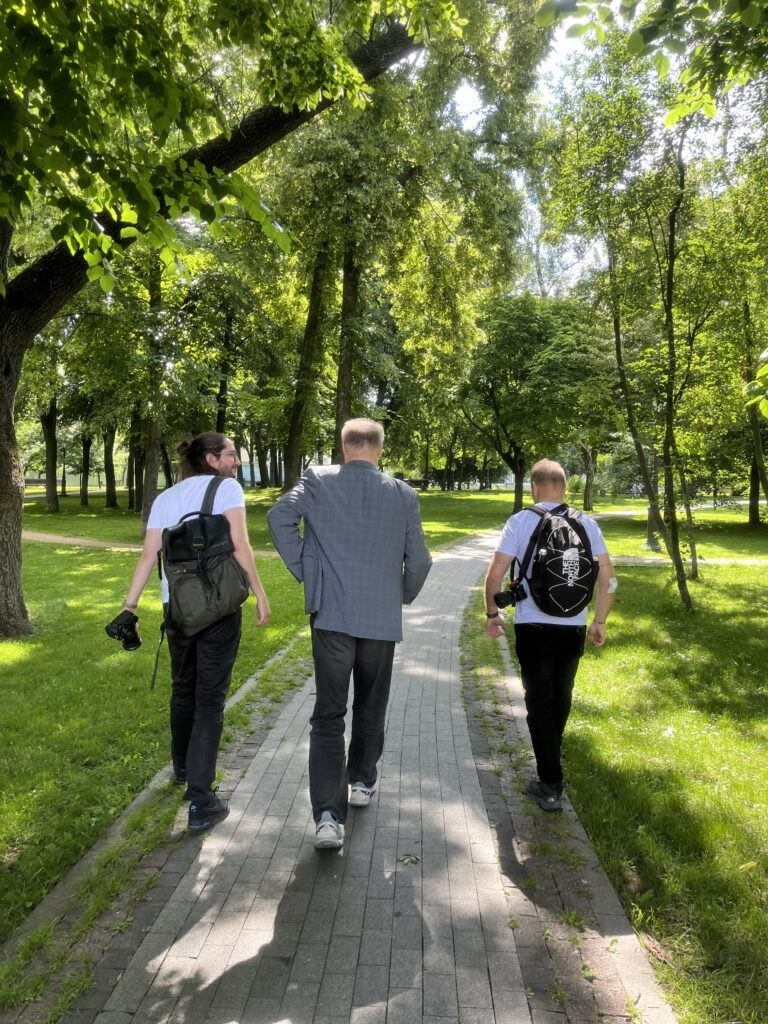
Ukraine’s Special Representative for Latin America, Ruslan Spirin, described the slow but deliberate work of expanding Kyiv’s diplomatic presence in regions where Russian narratives have gone largely unanswered.
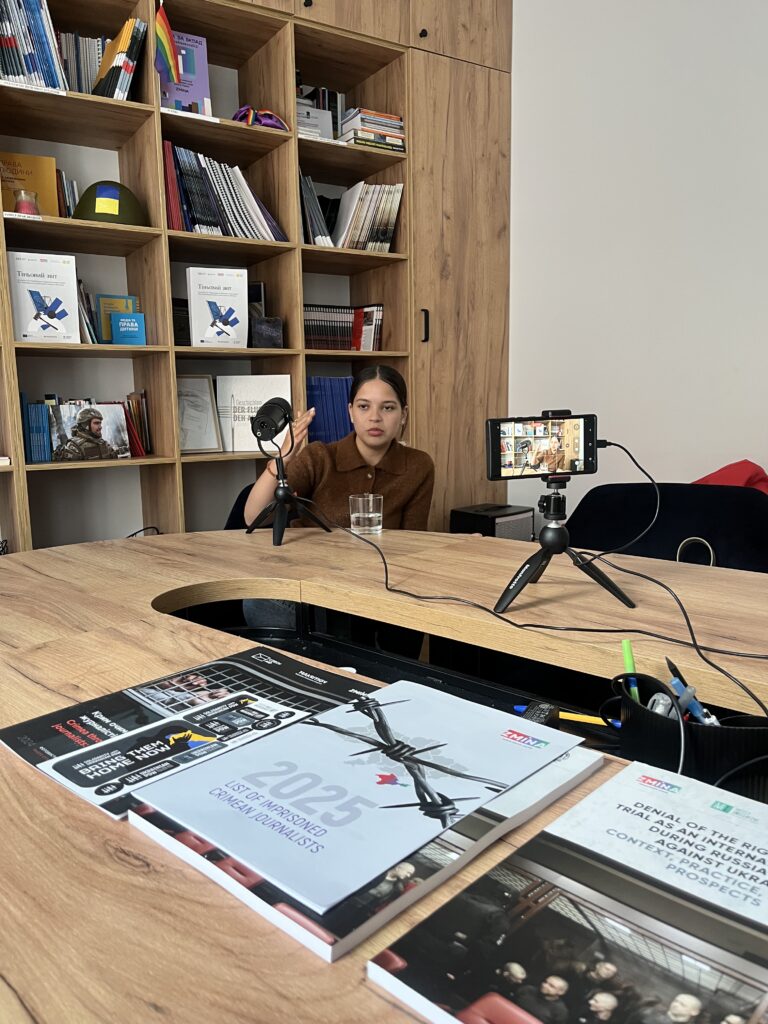
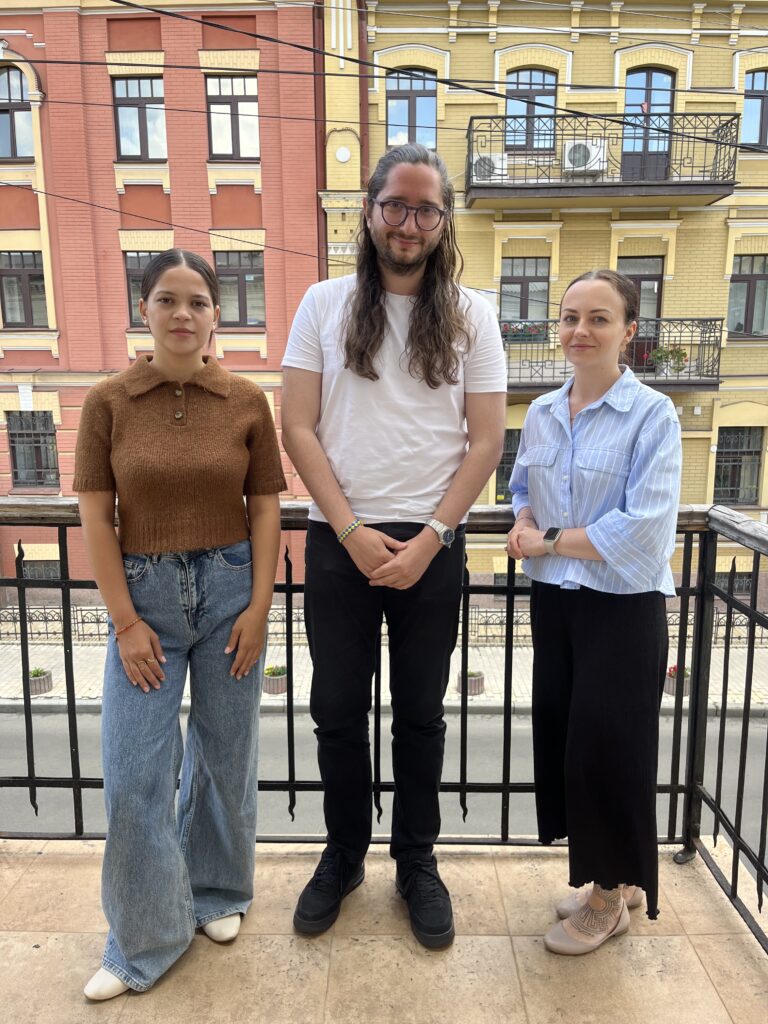
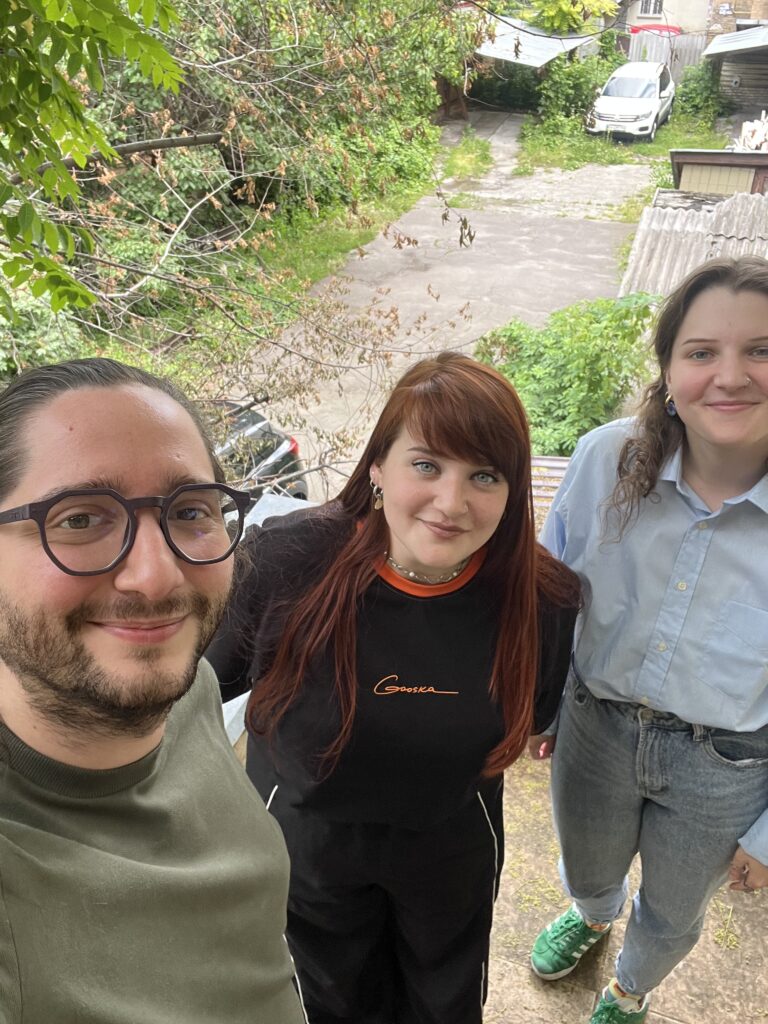
At ZMINA Human Rights Center, Rincón met with Viktoria Nesterenko and Crimean Tatar activist and former political prisoner Leniie Umerova, who described life under occupation and attempts to erase Ukrainian identity. War crimes documentation head Yelyzaveta Sokurenko described the evolving tactics of repression in occupied territories and the challenges of preserving evidence in a protracted conflict.
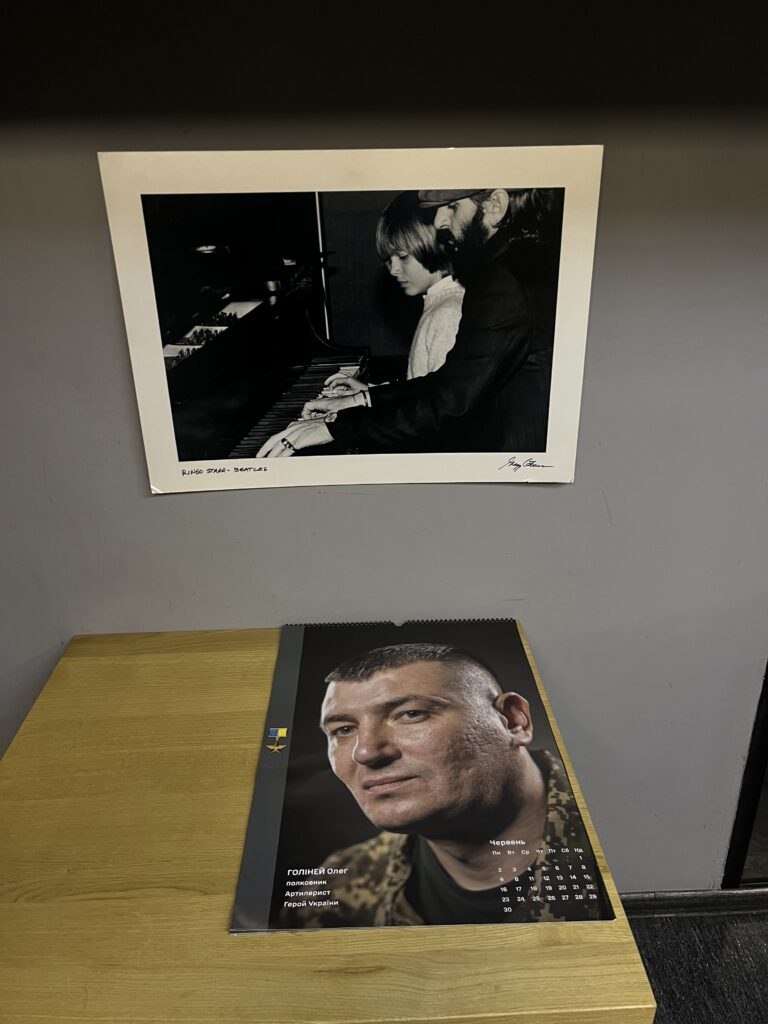
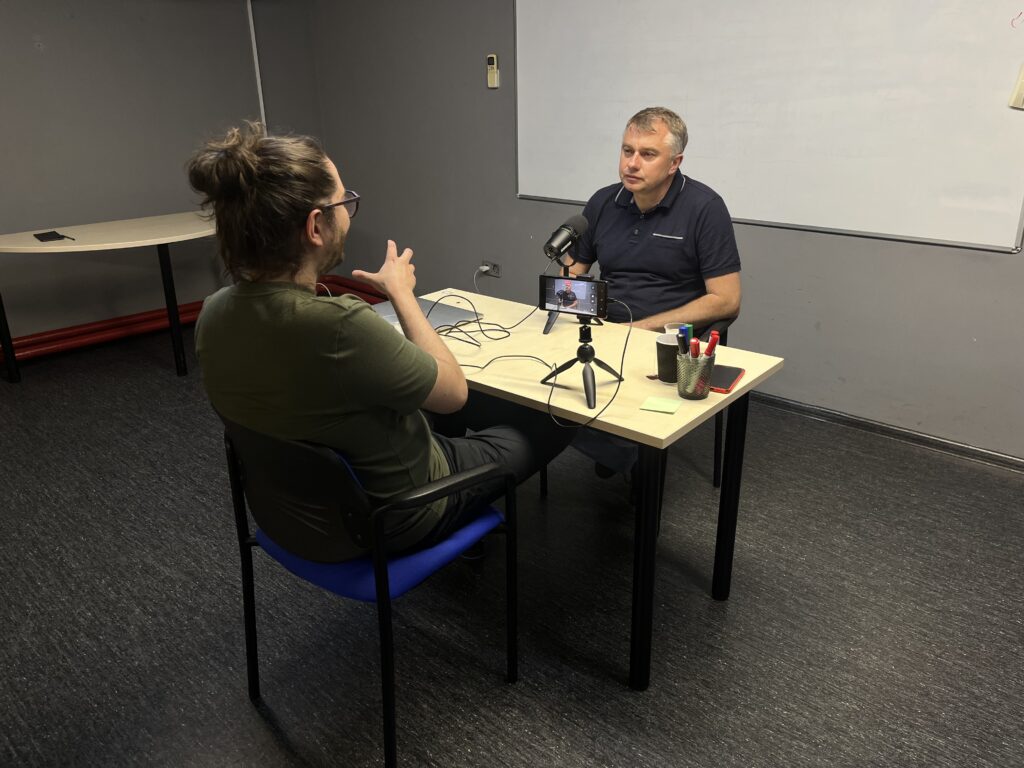
In a focused briefing, Ruslan Deynychenko of the Kyiv-Mohyla School of Journalism broke down how Russian disinformation has evolved into a sophisticated tool of hybrid warfare. He explained how false narratives are crafted and amplified, including in Latin America, and emphasized that disinformation is a strategic weapon used by authoritarian regimes to manipulate public perception. Ruslan also discussed the StopFake project, a flagship initiative of the Center for Media Reform, which he co-founded. StopFake not only identifies instances of misinformation about events in Ukraine but also initiated an international discussion on how to counter such a harmful phenomenon.
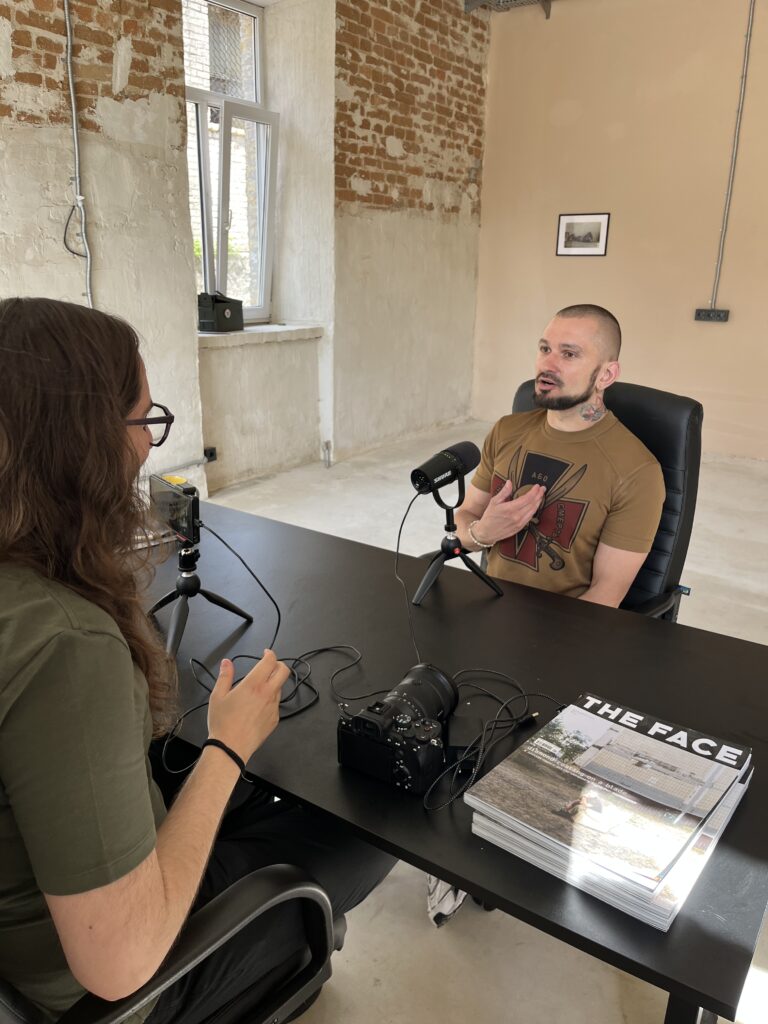
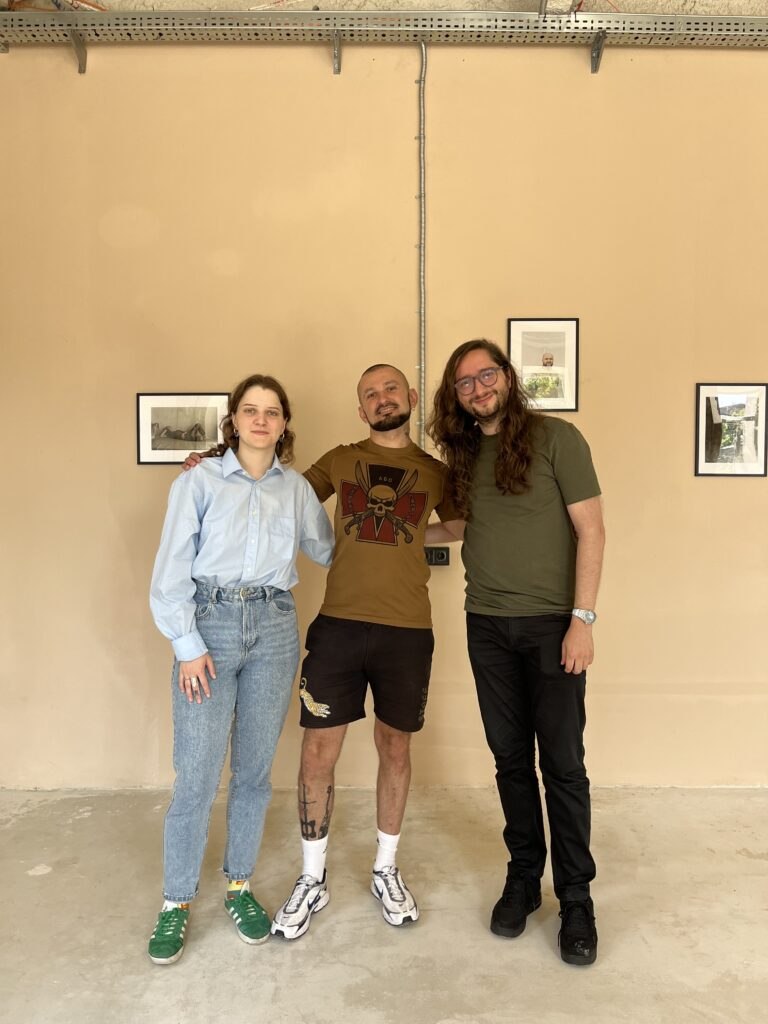
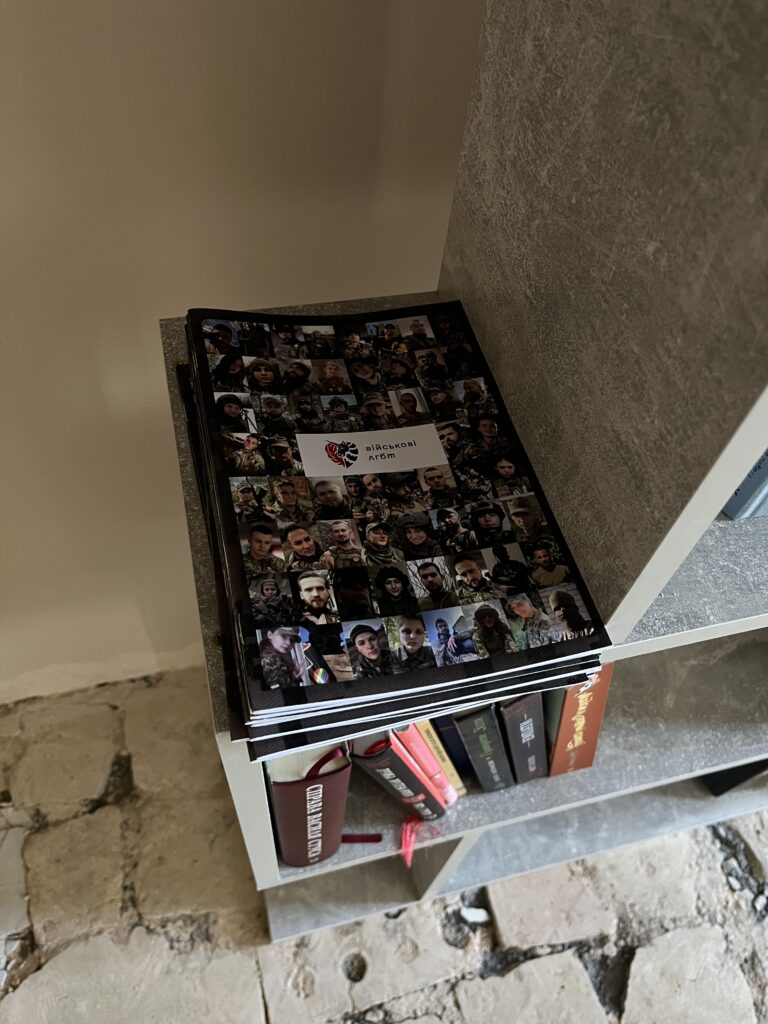
At the NGO “Ukrainian LGBT+ Military and Veterans for Equal Rights”, Rincón met founder Viktor Pylypenko. The organization unites over 500 LGBT+ service members and veterans — some openly, others discreetly — and campaigns for marriage equality, protection from discrimination, and full inclusion in society. Pylypenko spoke about defending the country on the battlefield while also confronting ingrained prejudices at home, underscoring the inseparability of Ukraine’s fight for sovereignty and for equal rights.
Kharkiv: Close to the Fire, Steady in the Storm
The journey to Kharkiv, coordinated by the Kharkiv Media Hub, exposed Rincón to a city shaped by resilience under fire. His experience captured the dual reality of destruction and adaptation.
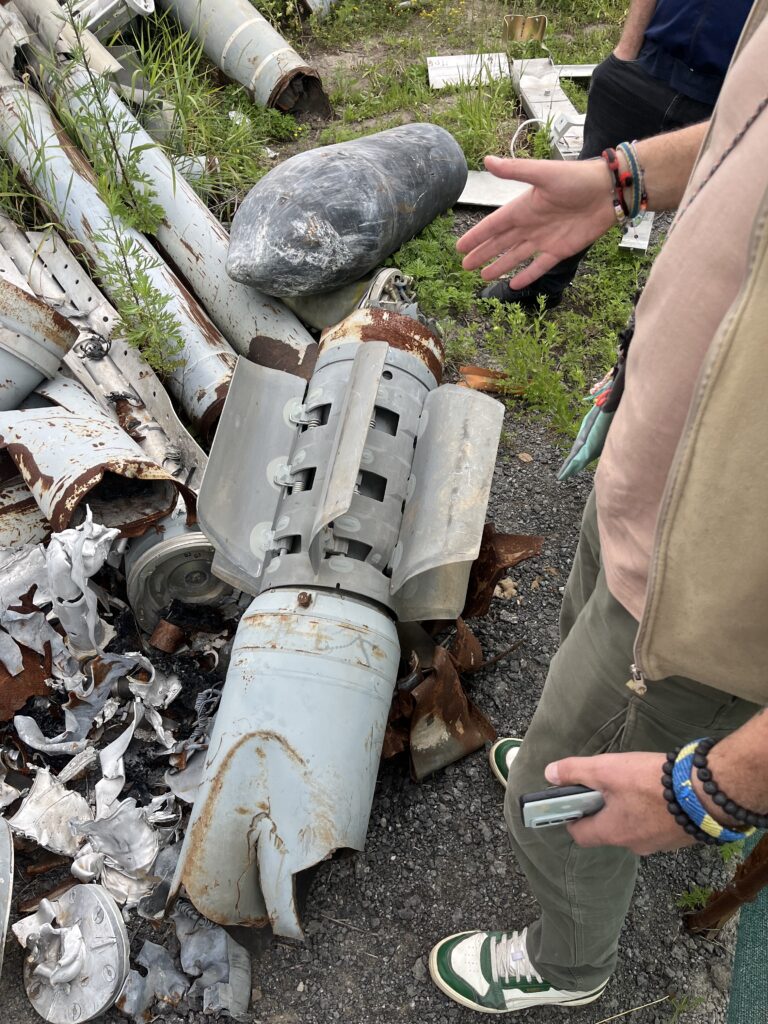
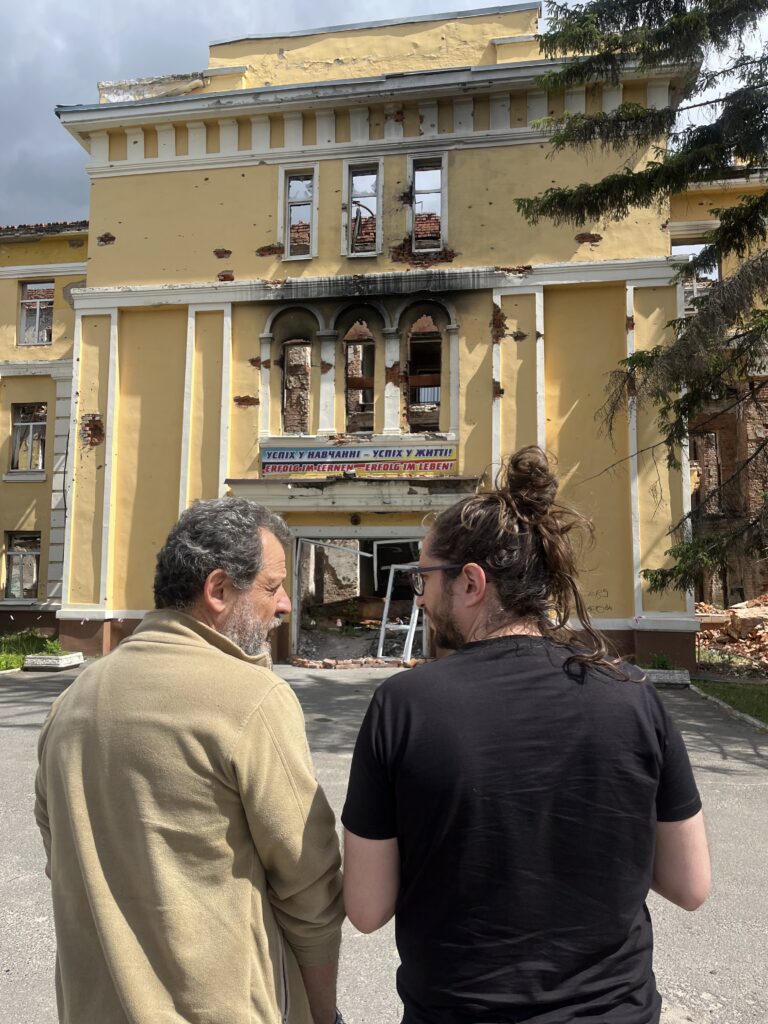
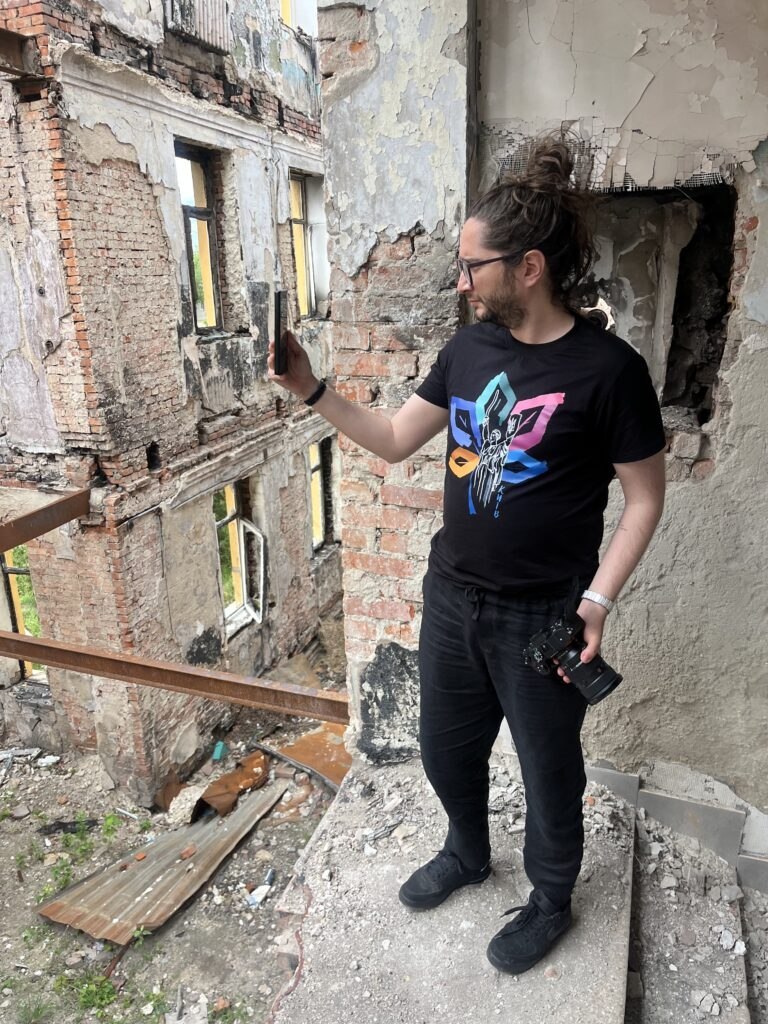
Accompanied by a war crimes prosecutor, Juan visited the so-called “missile graveyard” — a collection site for remnants of Russian attacks, including Shahed-136 drones and ballistic missiles. These remains are preserved as legal evidence for future proceedings at the International Criminal Court. A symbolic moment unfolded near Kharkiv School №134, which was heavily damaged by Russian shelling. It was near this school that Ukrainian veteran Dmytro Oliinyk and his fellow soldiers fought back Russian forces in 2022. Juan met Dmytro in person and listened to his testimony.
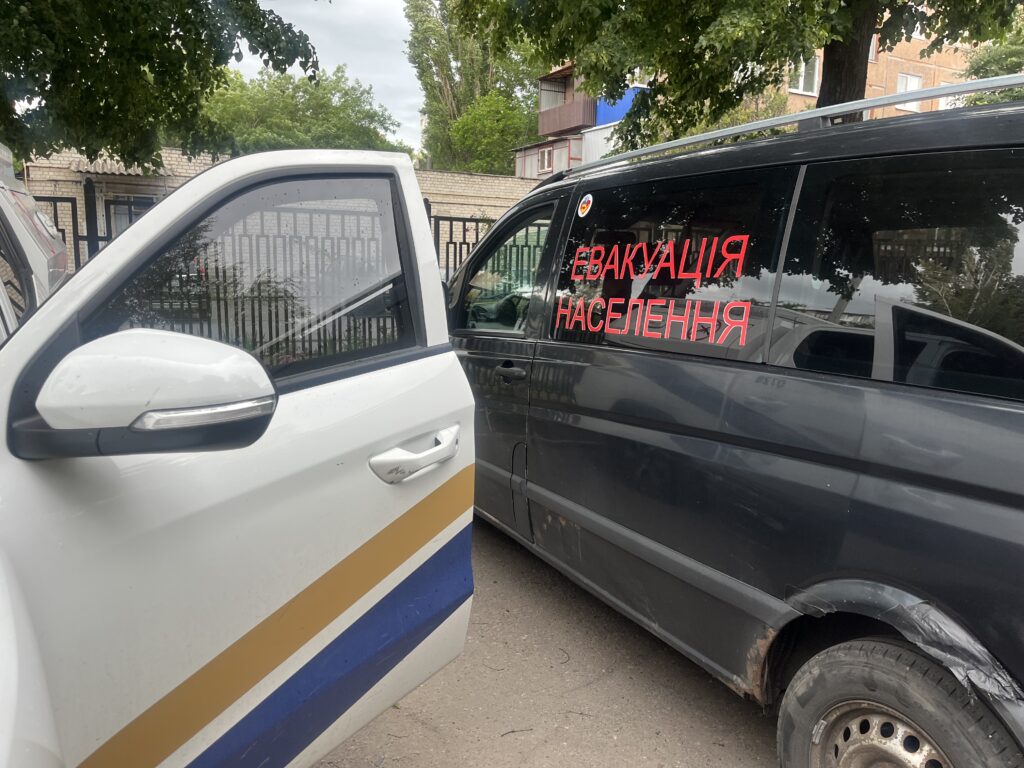
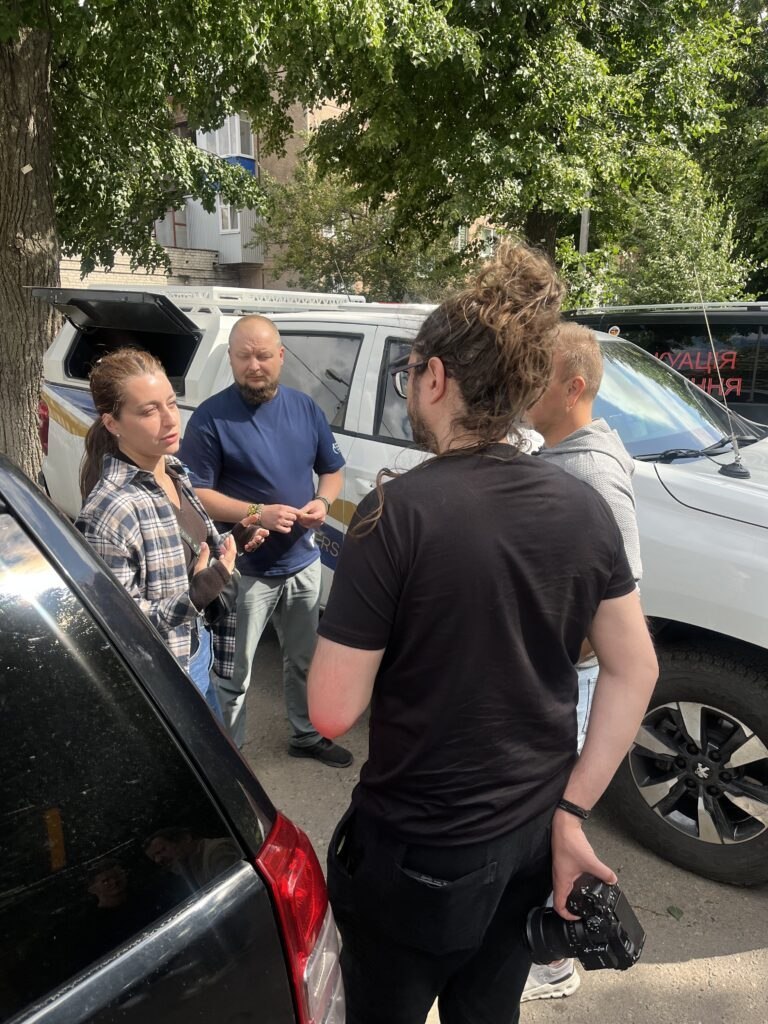
At the Relief Coordination Centre, he learned how evacuations and aid deliveries are organized in dangerous zones.
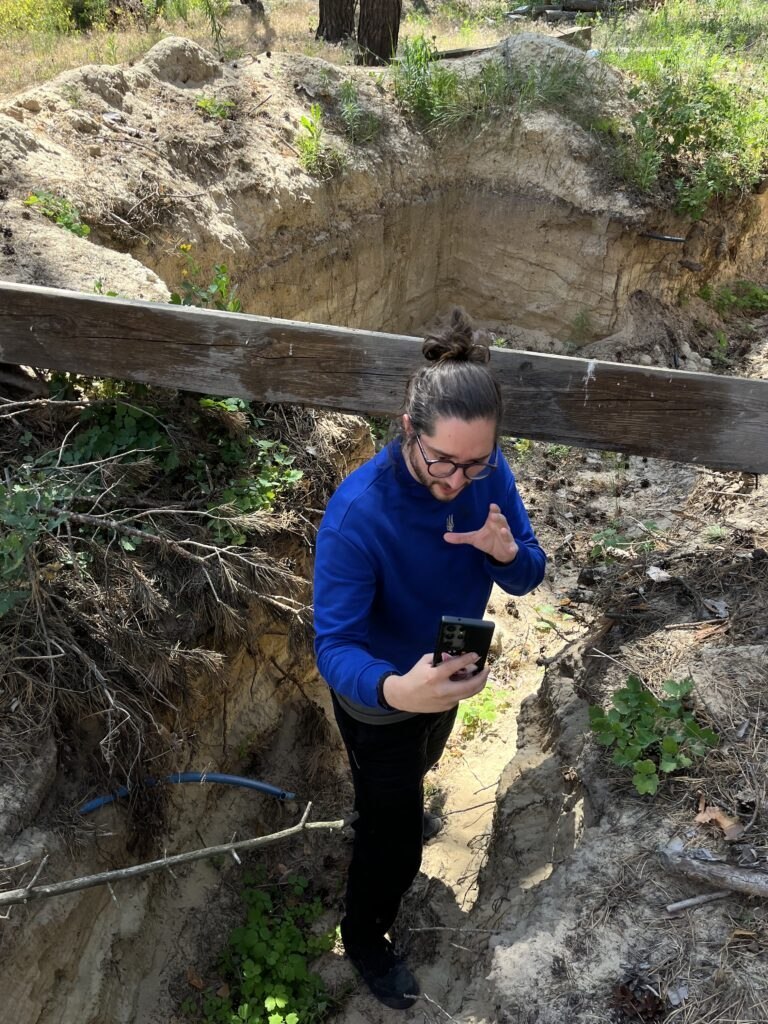
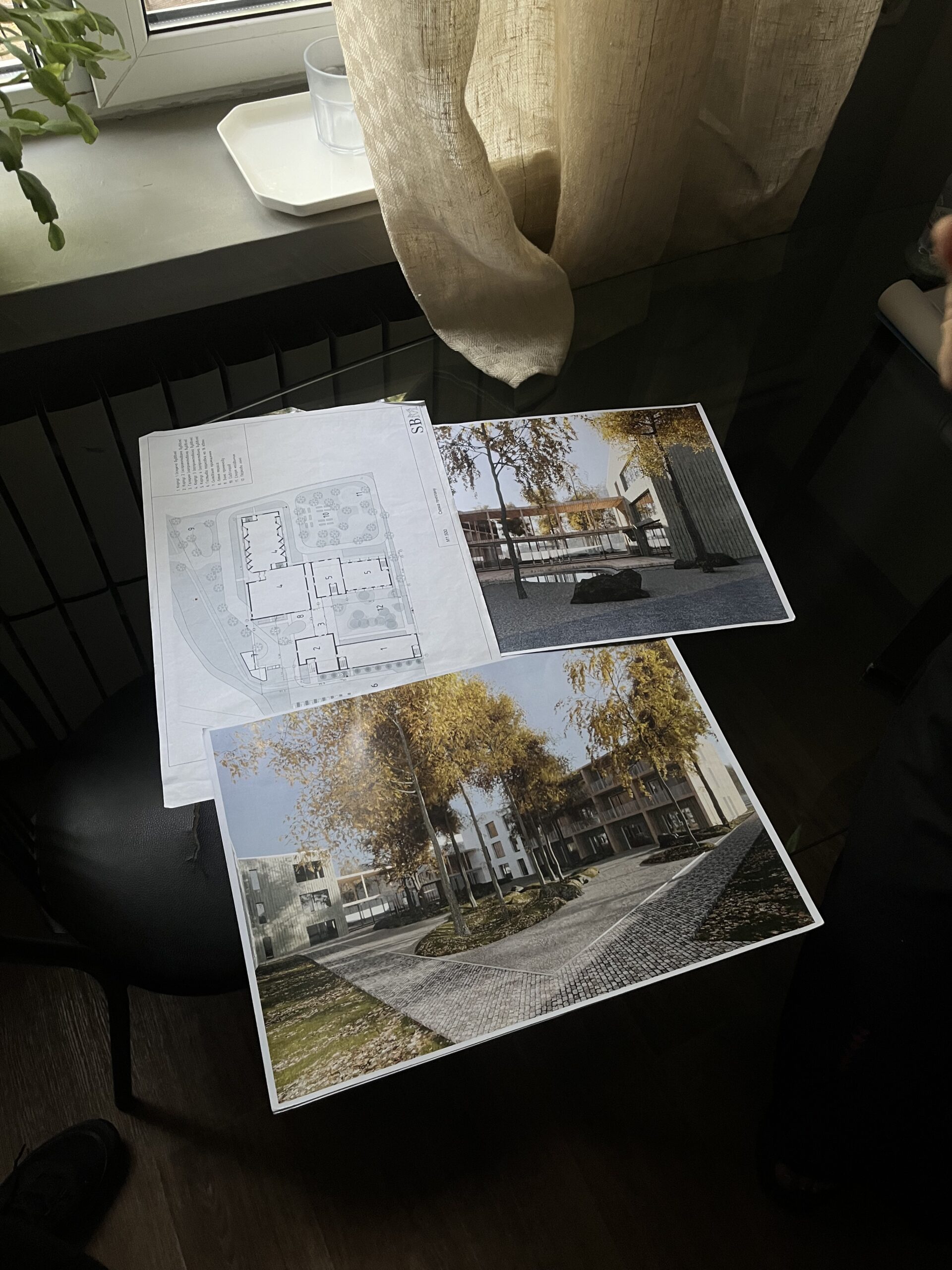
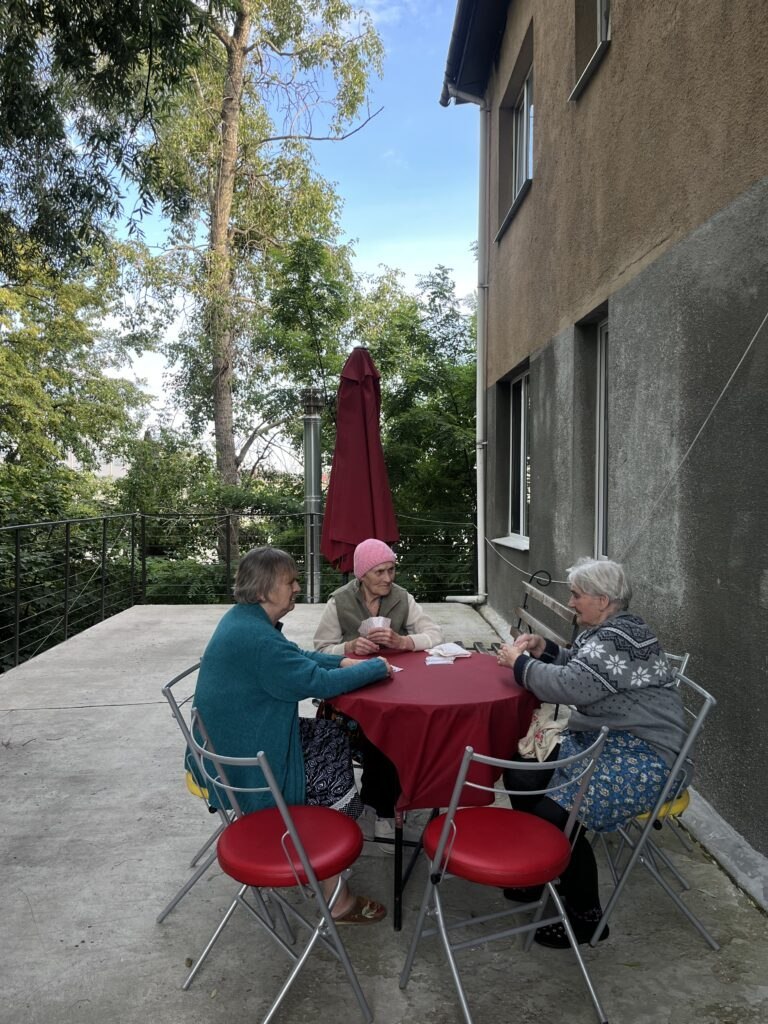
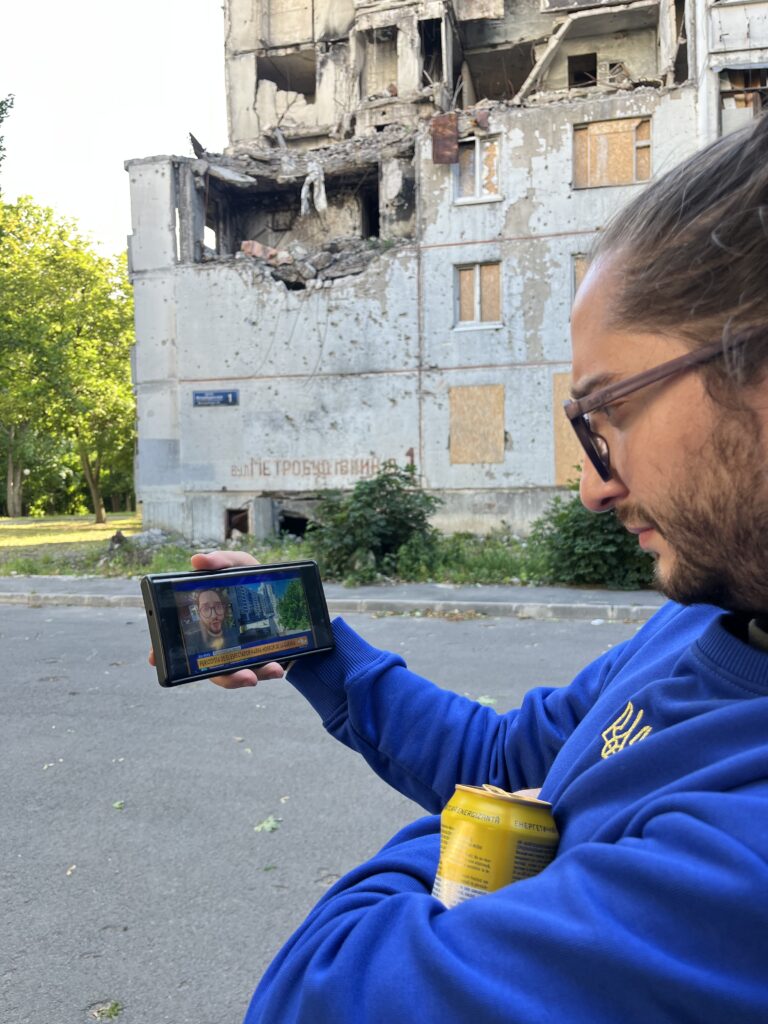
The city also revealed how culture and community endure. A ballet rehearsal held in a bomb shelter reflected the strength of culture in wartime, while the journey to Staryi Saltiv — a town once occupied by Russian forces — illustrated how communities are slowly rebuilding. At the De Visu drone manufacturing facility, Ukrainian engineers demonstrated how technology is being adapted for defense. In a shelter run by the NGO Through the War, elderly people and those with disabilities found safety and dignity despite the ongoing threat.
Throughout the visit, Juan shared his impressions on social media and in a live broadcast for Noticias Caracol, offering Latin American audiences a rare and intimate view of Ukraine’s wartime reality — not only through headlines but through human voices, spaces, and acts of quiet defiance.
“If you asked me for one video to sum up Ukraine, this would be it,” he wrote from Kharkiv. “A hospital that was hit by drones months ago — now working, with broken windows, a beautiful park in front, and people trying to live a normal life.”
Lviv Region — Healing the Youngest
In the Lviv region, Rincón visited Gen.Camp, a rehabilitation program for children affected by the war. Founder Oksana Lebedieva and chief psychologist Vanui Martirosyan described the careful process of rebuilding a child’s sense of safety. Watching the children engage in games and workshops, Rincón saw a quieter form of resistance: ensuring that the war does not define their future.
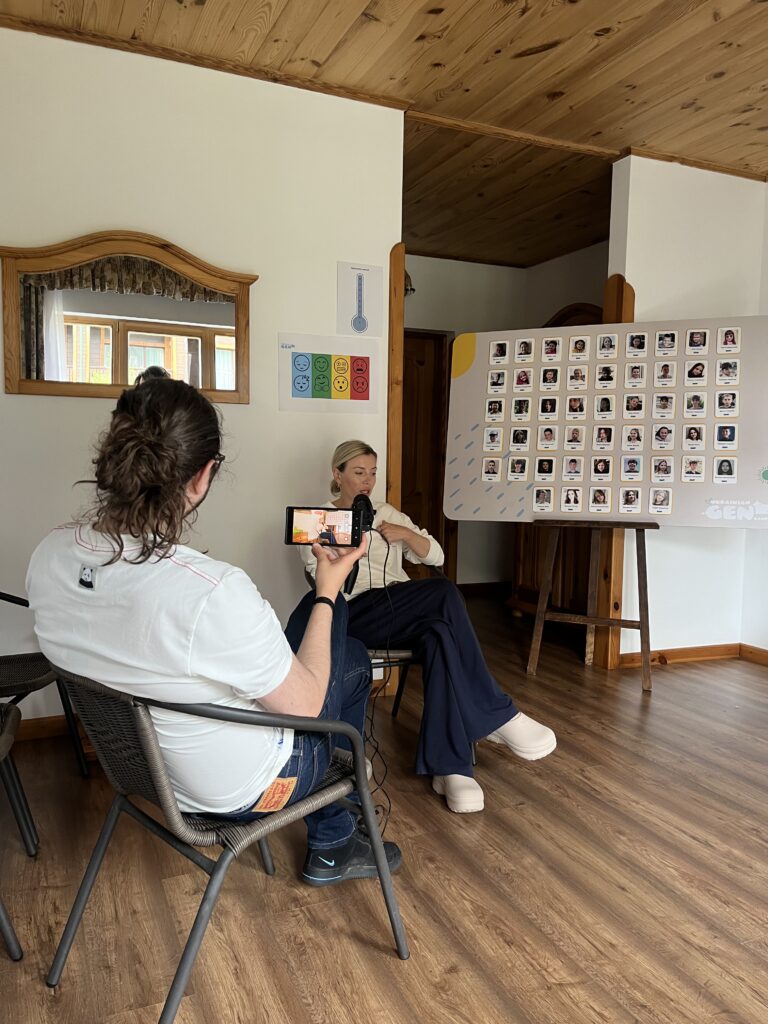
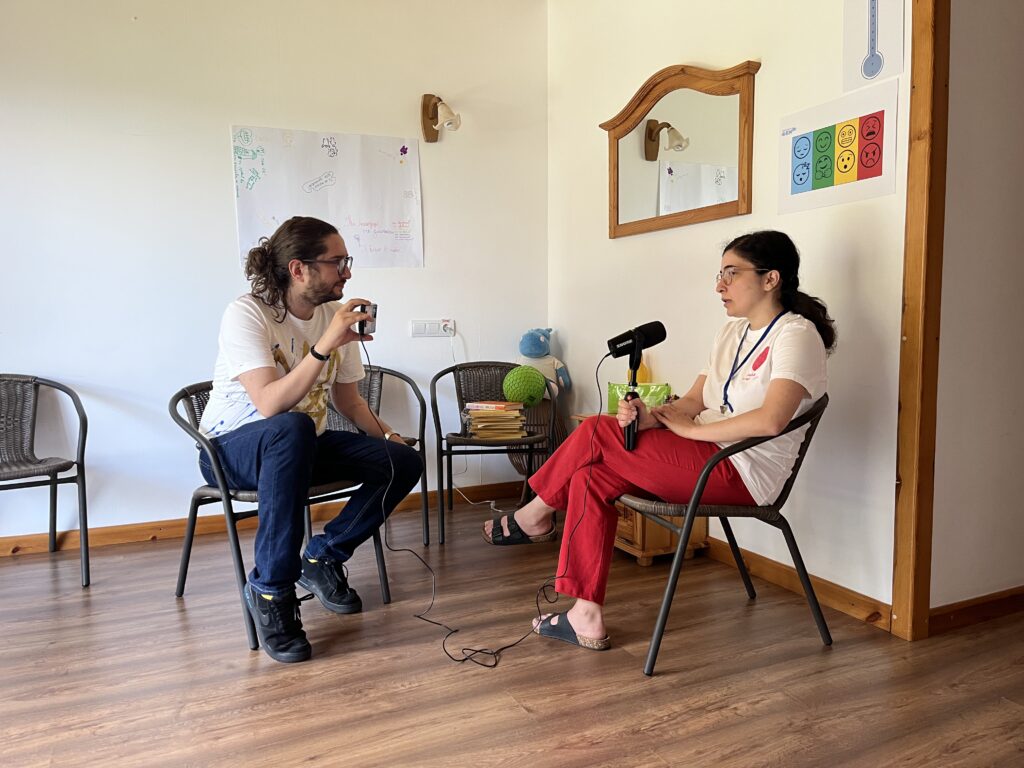
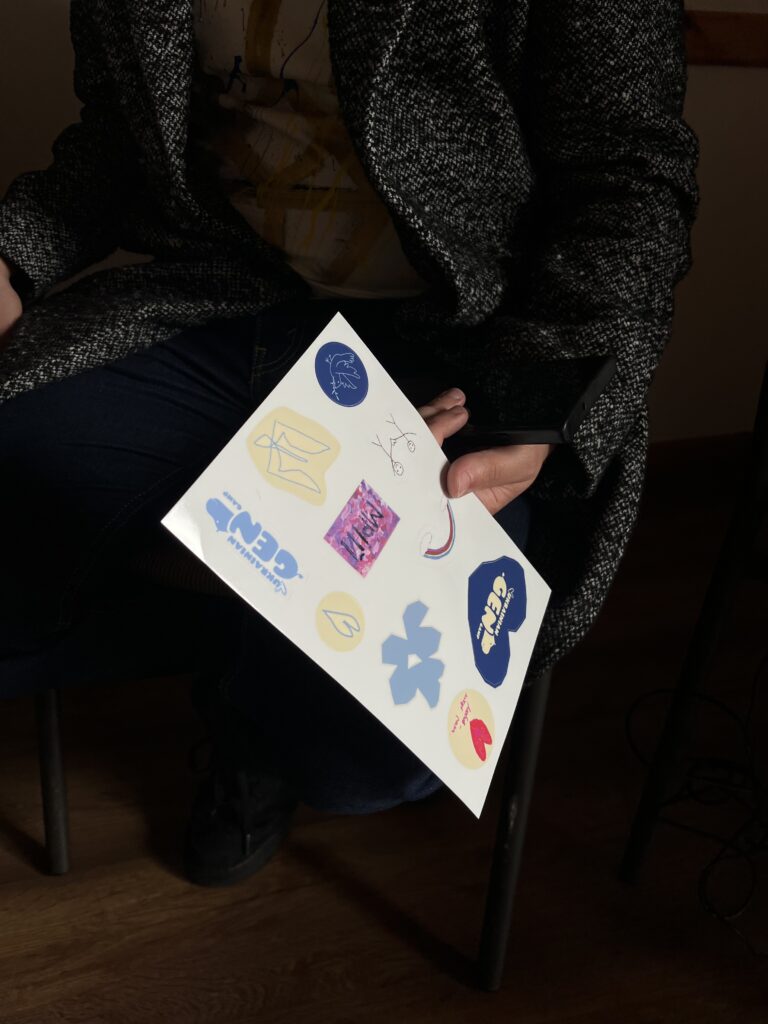
Beyond the Visit — A Human Message
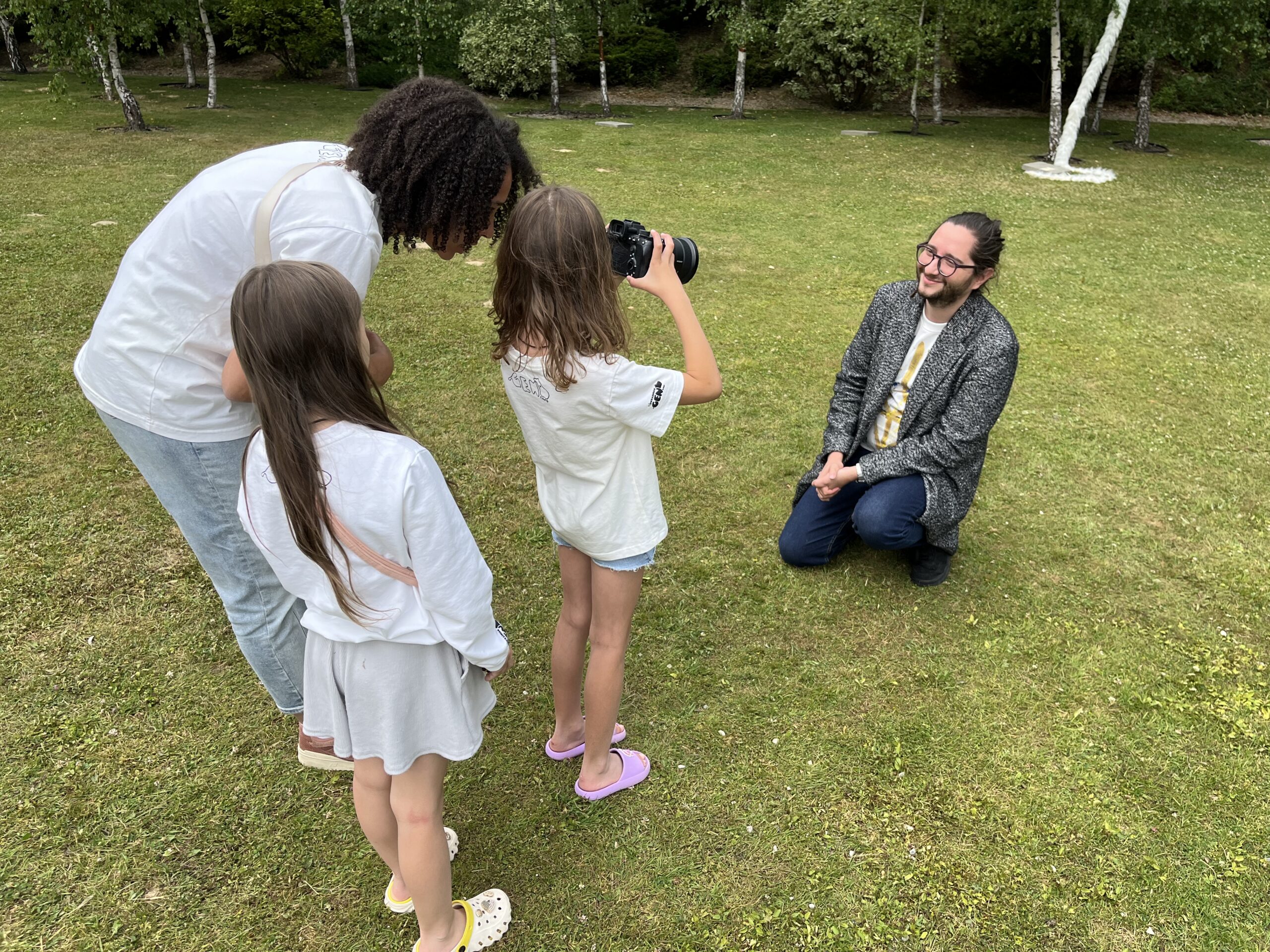
Rincón is now preparing articles, videos, and digital content for audiences in Colombia and across Latin America. His reporting will carry Ukrainian voices into a region where the war is often misrepresented or ignored.
For Ukraine, the visit was more than a press tour. It showed how independent journalists from non-aligned regions can become trusted messengers, capable of cutting through disinformation and political noise. It was also proof that the most effective communication in wartime is often rooted in human stories — in the voices of survivors, soldiers, lawyers, activists, and children.
As Ukraine works to build lasting ties beyond its traditional partners, experiences like Rincón’s demonstrate the value of sustained, direct engagement. In the long run, such encounters can shift not only public opinion, but also the diplomatic landscape — forging connections that will matter long after the war is over.
The visit was organized with the support of the International Renaissance Foundation.